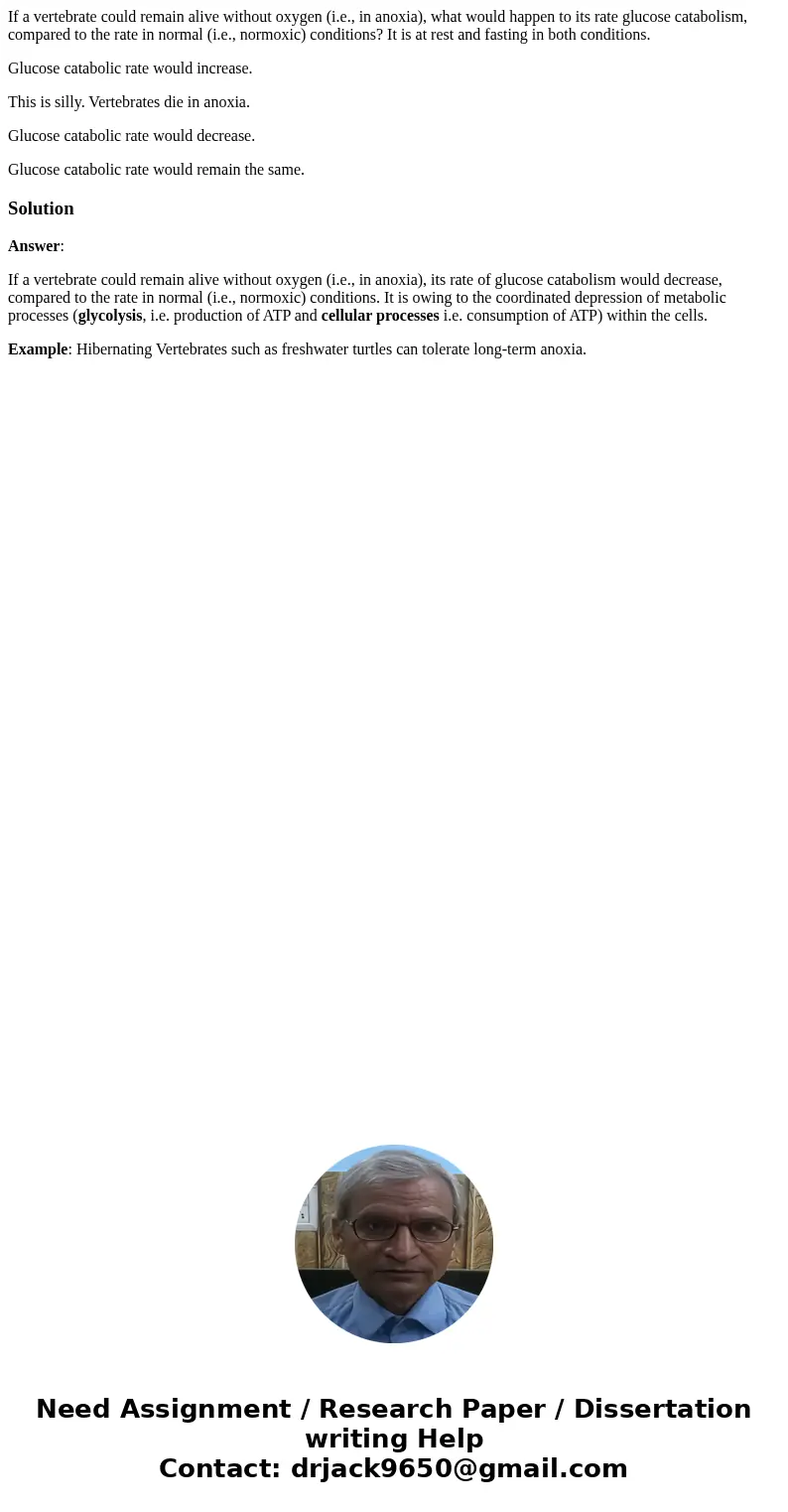If a vertebrate could remain alive without oxygen ie in anox
If a vertebrate could remain alive without oxygen (i.e., in anoxia), what would happen to its rate glucose catabolism, compared to the rate in normal (i.e., normoxic) conditions? It is at rest and fasting in both conditions.
Glucose catabolic rate would increase.
This is silly. Vertebrates die in anoxia.
Glucose catabolic rate would decrease.
Glucose catabolic rate would remain the same.
Solution
Answer:
If a vertebrate could remain alive without oxygen (i.e., in anoxia), its rate of glucose catabolism would decrease, compared to the rate in normal (i.e., normoxic) conditions. It is owing to the coordinated depression of metabolic processes (glycolysis, i.e. production of ATP and cellular processes i.e. consumption of ATP) within the cells.
Example: Hibernating Vertebrates such as freshwater turtles can tolerate long-term anoxia.

 Homework Sourse
Homework Sourse